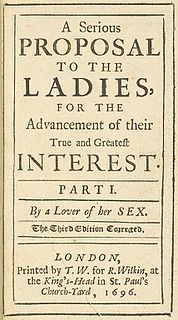A Quote by John Locke
Virtue is everywhere that which is thought praiseworthy; and nothing else but that which has the allowance of public esteem is called virtue.
Quote Topics
Related Quotes
lf the attribute of popular government in peace is virtue, the attribute of popular government in revolution is at one and the same time virtue and terror, virtue without which terror is fatal, terror without which virtue is impotent. The terror is nothing but justice, prompt, severe, inflexible; it is thus an emanation of virtue.
There is one vice of which no man in the world is free; which every one in the world loathes when he sees it in someone else; and of which hardly any people, except Christians, ever imagine that they are guilty themselves. […] There is no fault which makes a man more unpopular, and no fault which we are more unconscious of in ourselves.[…]The vice I am talking of is Pride or Self-Conceit: and the virtue opposite to it, in Christian morals, is called Humility.
If a man of good natural disposition acquires Intelligence [as a whole], then he excels in conduct, and the disposition which previously only resembled Virtue, will now be Virtue in the true sense. Hence just as with the faculty of forming opinions [the calculative faculty] there are two qualities, Cleverness and Prudence, so also in the moral part of the soul there are two qualities, natural virtue and true Virtue; and true Virtue cannot exist without Prudence.




































